We have many clients ask us about the benefits of epoxy flooring. While we’ll list all the top advantages of epoxy flooring in this article, we want to ask a better question:
What CAN’T epoxy do?
This seemingly limitless substance does things that other flooring substrates can’t dream of. Our epoxy garage floors do much more than just stand the test of time. If you want to upgrade the aesthetic and the overall function of your garage floor, you need to try epoxy. If you want to make your commercial or industrial place the safest it can be, epoxy flooring is your solution.
Sure, epoxy is not the cheapest flooring solution. But the best never is.
Epoxy floor coatings bring space-age technology into your home. Epoxy is highly durable, resistant to hundreds of different chemicals, nearly indestructible, and a sound investment. It’ll be the last garage flooring solution you need. In this article we’ll be going over how epoxy flooring can increase the safety, value, and look of your home.
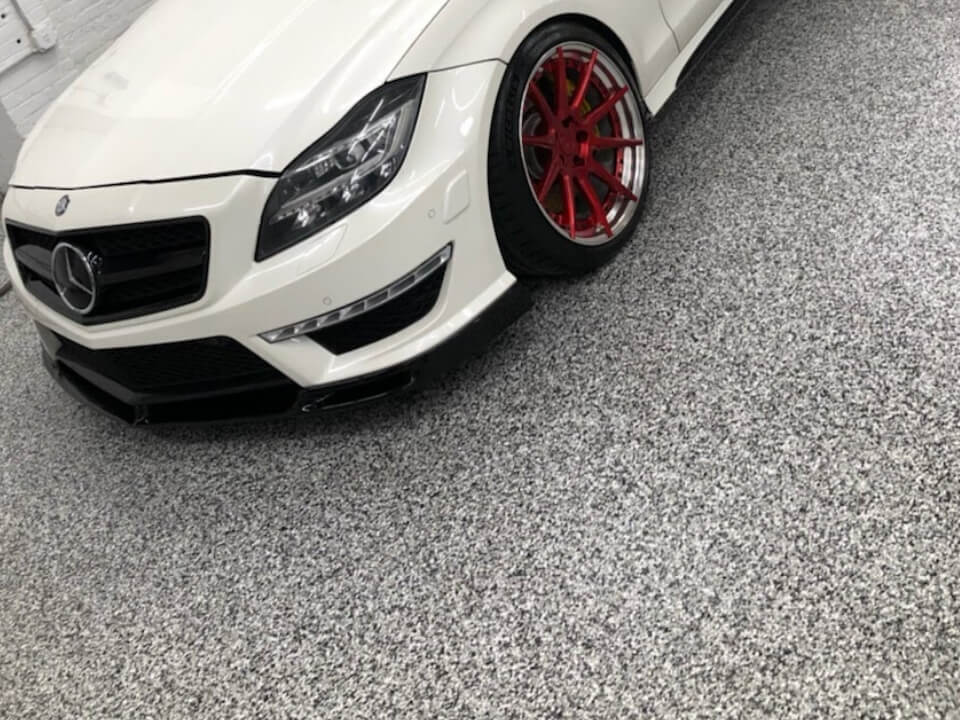
Benefits of Epoxy Flooring
The benefits of epoxy flooring cannot be stated enough. While epoxy flooring is often used for industrial and commercial flooring, it has recently found its way into millions of American homes.
Epoxy is a high performance, chemically resistant floor solution that prevents wear and tear and exhibits an anti slip, seamless surface, that provides longevity and protection. It is able to withstand preposterously heavy loads and also offers a safe and smooth flooring surface.
Epoxy is ideal for warehouses, industrial applications, and residential uses. Here are just a few of the advantages:
- Epoxy is naturally glossy. While there are varying strengths of glosses that you can choose from, high-gloss epoxy can vastly increase the amount of brightness in interior areas. This can add pops of color and character to commercial kitchens, food processing plants, pool patios, garages, rec rooms, and anything else in between.
- Epoxy is incredibly durable and offers crack and scuff resistance. It’s seamless surface can last many years – decades, in fact – if installed and maintained with care.
- Epoxy resists all types of chemicals, including harsh solvents and cleaners. You also won’t have to worry about oil spills and stains, as epoxy is very stain resistant.
- Epoxy resists water and moisture, so you’ll never have to worry about mold or mildew growing underneath your garage concrete. This will also help prevent the possible degradation of concrete foundations.
- Epoxy’s durable surface will be able to withstand heavy, long, and continuous foot traffic and vehicle traffic.
- Epoxy is easy to clean and maintain. Since it is antimicrobial and non-porous, you don’t have to worry about water seeping through the concrete.
- Epoxy prevents wear and tear on the existing concrete substrate.
- Epoxy is incredibly sanitary and FDA and USDA approved for restaurants, commercial kitchens, food processing plants, schools, hospitals, and wherever hygiene is a concern.
Even More Epoxy Flooring Advantages
It’s time to start paying attention to your floor. Unless there is something very wrong or unsightly about the surface, most people won’t pay much attention to their floor whatsoever. However, we choose to see floors as an essential part of safety and productivity in the workplace. Epoxy flooring is so smooth that it can actually help reduce the wear and tear on vehicles in your facility. It is much more easy-going on machinery than a plain concrete floor, for example.
Epoxy saves time and energy, as it is easier to apply a few epoxy floor coatings than it is to rip out hundreds of square feet of dilapidated concrete slabs. To save time, hiring a professional epoxy floor contractor to grind the concrete floor, fill the imperfections and cracks with epoxy, and then coating the floor with epoxy, is much more time efficient and cost effective than a brand new concrete floor.
Epoxy is also the strongest commercially available flooring solution, which means that once it has been laid and converted to a solid polymer substrate, it becomes an immovable object. These solid polymers prevent chemical breakdown, mitigate spills, and provide a clean aesthetic. A safe workplace is guaranteed for your employees, your equipment and yourself.
How Long Does Epoxy Flooring Usually Last?
The average lifespan of an epoxy floor coating greatly depends on where it is being used, what it is being used for, and how many coats are applied. The solid count of the epoxy mixture also plays an important role, with 100% solids epoxy being a more durable coat with enhanced longevity.
In many residential cases, such as pool decks and garages, low-wear environments with not a huge amount of vehicle and foot traffic can see an epoxy floor last over three decades. If the floor is properly maintained (by means of mopping, vacuuming, and very minor refinishing), a residential floor will effectively last you a lifetime. For commercial and industrial purposes, the lifespan of the floor can vary greatly depending on certain factors.
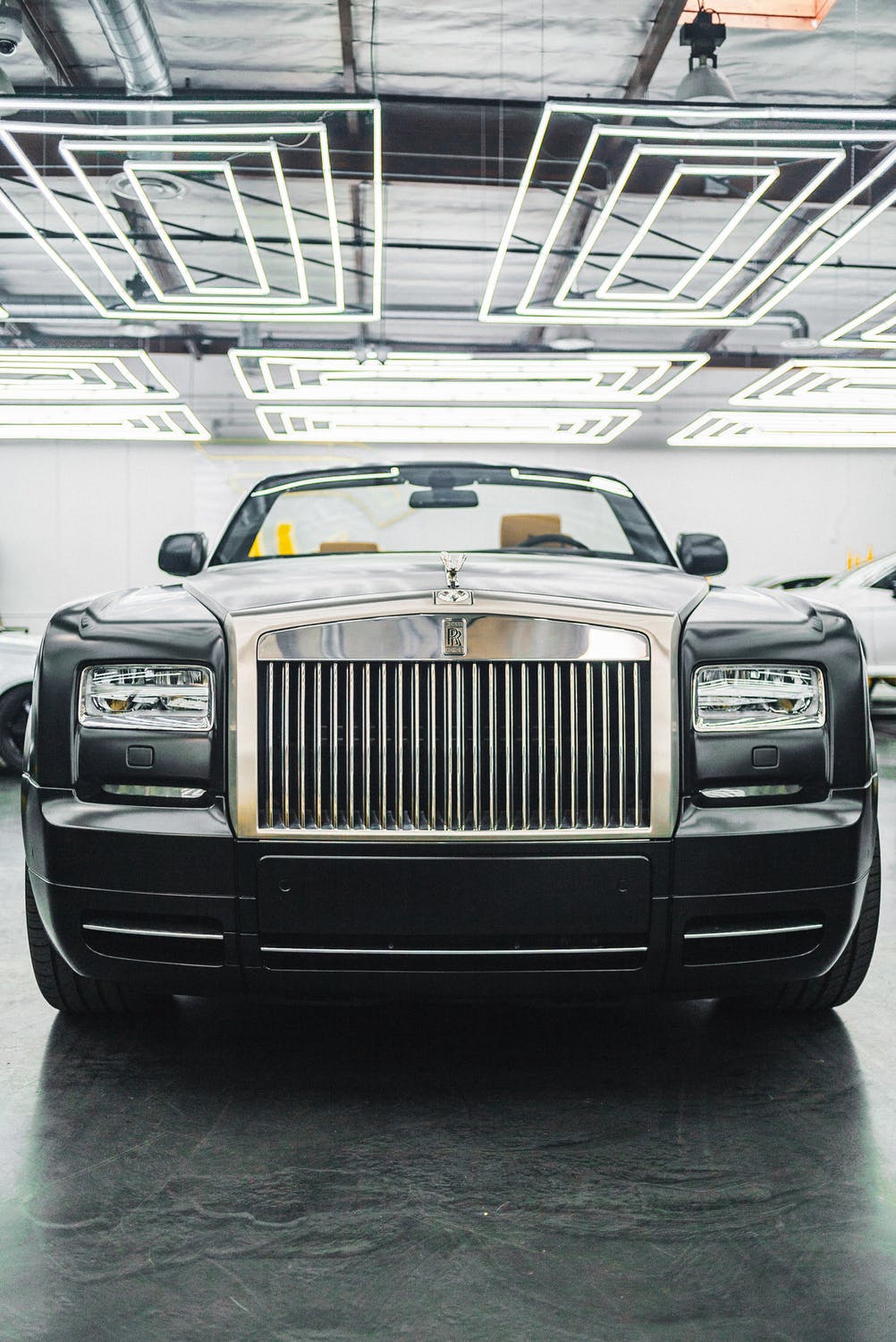
For heavy industrial applications such as machine shops, high-volume warehouses, and areas prone to massive weight loads, you can expect a professionally installed epoxy floor coating to last between 5-10 years. Occasionally these floors will last longer if the work is not too intense.
When an epoxy floor coating begins to break down, it can look like localized breakdowns and small, miniature cracks along the surface. While this will generally take many years to happen, you should always call a flooring professional to take a look just in case.
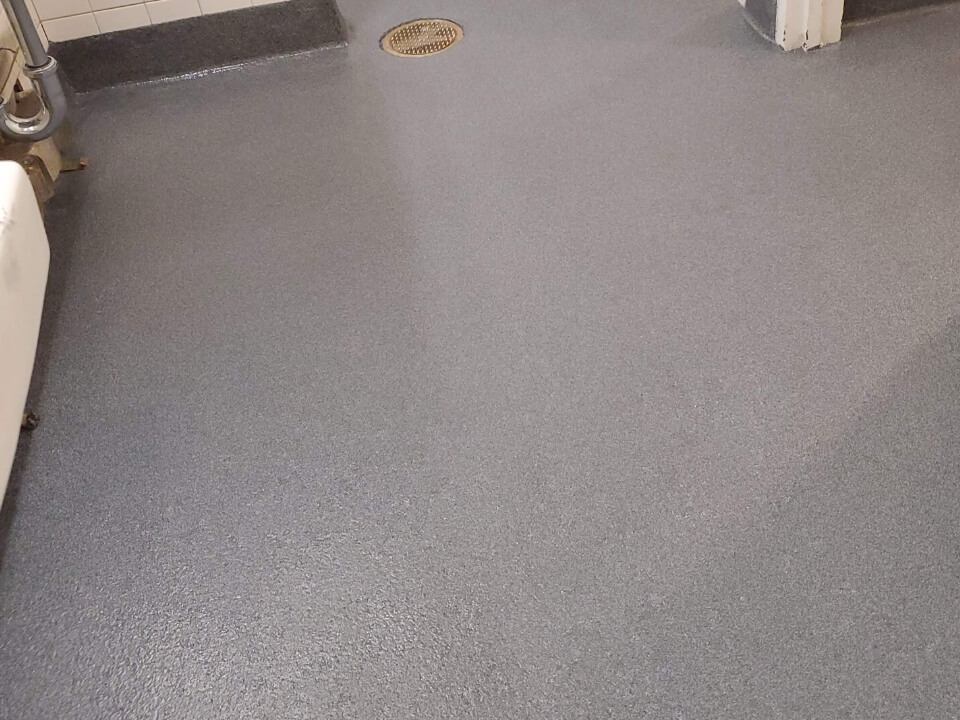
Factors That Influence High Performance Epoxy
The lifespan of your epoxy flooring will greatly depend on how it is installed. There are many factors that can influence the installation of an epoxy floor coating:
1. Preparation of the Surface
The concrete on which the epoxy floor coating will be installed must be thoroughly cleaned prior to the epoxy installation. A contractor will check to make sure that the concrete floor is properly level, which means that any cracks, divots, scuffs, and imperfections are either filled or ground down with a diamond-tipped concrete grinder. The concrete must be thoroughly cleaned after it is ground, which means that no contaminants such as liquids, oils, or dust should be present.
2. Strength of the Substrate
The strength of the original concrete floor is something to be taken into consideration as well. This is a big factor in how well the epoxy will perform. For commercial applications and industrial applications, the minimum recommended strength of the concrete slab should be around 3000 PSI. 2500 or less is not recommended for a variety of reasons. Densifiers can help this issue, but a strong concrete foundation is needed for heavy industrial work.
3. Thickness of the Epoxy Floor Coating
In general, epoxy floor coatings range from 0.4mm to 1mm (in the industry, it is usually measured in microns, so 400 to 1000 microns, respectively). The thicker the epoxy coating, the longer the lifespan. In some commercial or residential applications, the thickness of the epoxy will exceed 1000 microns. In other cases, additional coatings will be needed depending on how hard the floor will be tested.
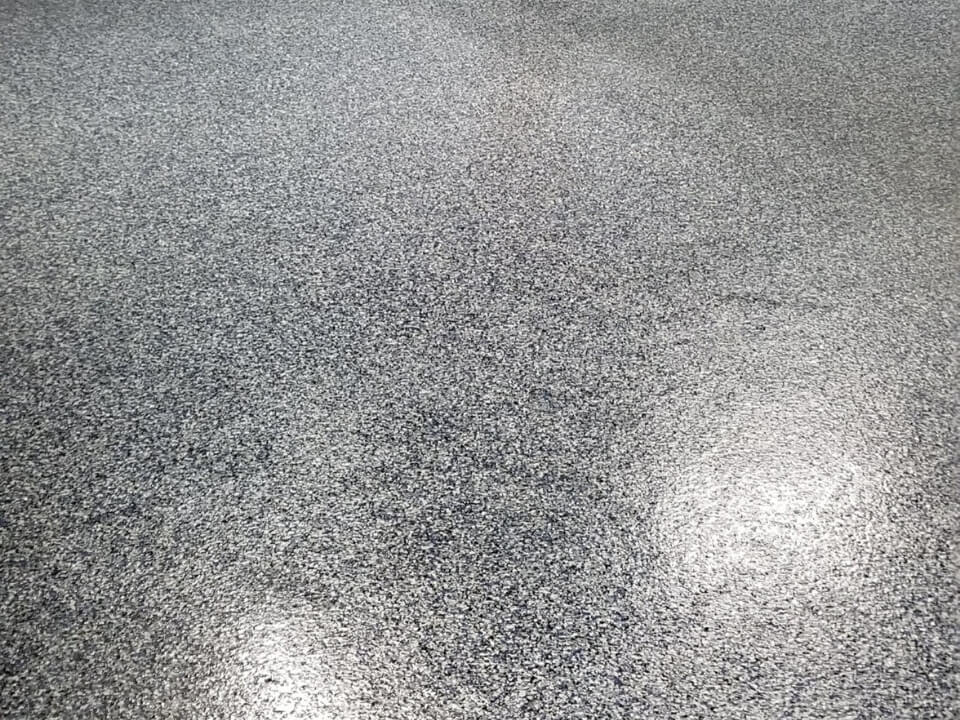
4. High Performance Epoxy Topcoat
A urethane topcoat is recommended to help resist scratches, abrasions, and blunt forces. The topcoat usually comes at a recommended thickness of 50+ microns.
5. How Much Traffic?
High levels of automobile traffic, equipment, and foot traffic will eventually wear down even the most well-installed epoxy floor coating. The heavy loads of trucks and forklifts will wear down any floor with enough time and energy.
6. How Much UV Exposure?
Unless properly formulated, most epoxy floor coatings have very poor UV resistance. This is why epoxy floor coatings are generally not recommended for outside surfaces, unless the surface is generally shaded (such as an indoor pool).
Epoxy Flooring Benefits Are Numerous
With all of that being said, we bet that you can see why epoxy floor coatings are becoming such a big deal in the residential, commercial, and industrial markets. Epoxy exhibits a surface that holds numerous positive characteristics: slip resistance, chemical resistance, wear and tear resistance, and a host of antimicrobial and aesthetic properties. Polished concrete is another popular flooring type that has different benefits like environmentally friendliness.
Coral Springs Epoxy is a leading provider of epoxy floor coatings in the Coral Springs, Florida area. For more information regarding our high-performance flooring solutions, contact our office to get in contact with a flooring specialist today!
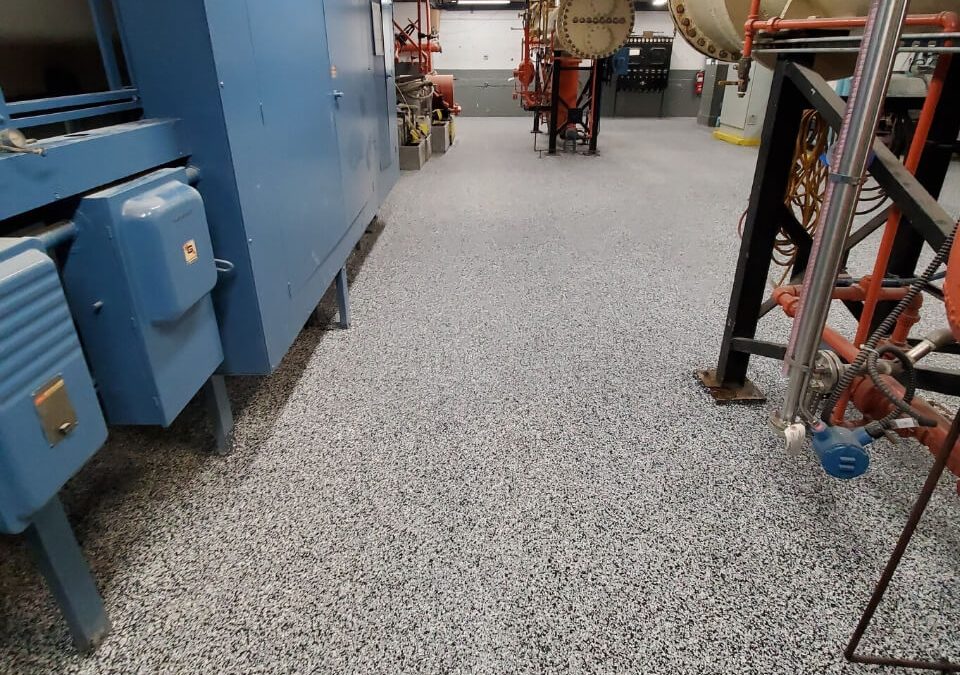

Recent Comments